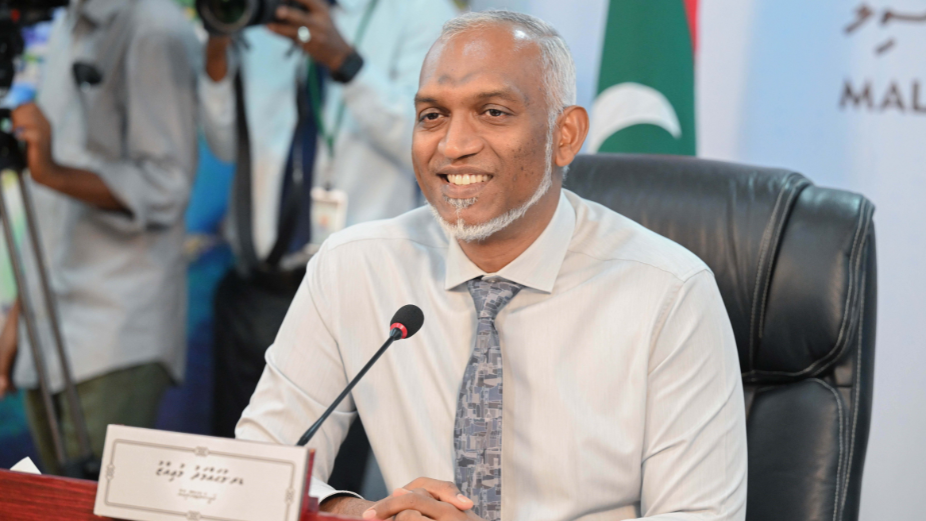
Earlier this year, the Maldivian government proudly announced strides in stabilising the dollar exchange rate, a move that was expected to bring relief to businesses and citizens alike. Fast forward to today, and the landscape looks decidedly different. The Bank of Maldives (BML) has just imposed severe restrictions on USD transactions, and the black market rate for USD has soared past MVR 18, leaving many to wonder: has the government truly delivered on its promises?
A Harsh Reality Sets In
The recent decision by BML to drastically limit foreign currency spending is a stark reminder of the fragility of the Maldivian economy’s relationship with the US dollar. While the government’s earlier statements painted a picture of control and progress, the need for such drastic measures suggests that the underlying issues remain unresolved. For a nation heavily dependent on imports, this is more than a financial inconvenience—it’s a potential crisis.
The measures introduced today signal a return to austerity reminiscent of the early days of the pandemic, when similar restrictions were imposed to conserve dwindling foreign reserves. However, while those limits were initially seen as a temporary response to an unprecedented global crisis, their persistence and now their tightening paint a troubling picture of the government’s inability to stabilise the situation long-term.
The Illusion of Progress
The government’s narrative of a stabilised dollar exchange rate now seems increasingly out of touch with the realities facing ordinary Maldivians. The black market rate, which is often a more accurate reflection of true demand, has continued its upward trajectory, surpassing MVR 18. This surge suggests that the official exchange rate, though nominally stable, does not meet the needs of the market, leading to a parallel economy that undermines confidence in the government’s financial policies.
The disparity between the official rate and the black market rate is more than just a number—it’s a barometer of public confidence. When individuals and businesses are forced to turn to unofficial channels to meet their dollar needs, it signals a lack of trust in the formal financial system. This trust deficit is a significant challenge for the government, one that cannot be overcome by optimistic pronouncements alone.
The Human Impact
Beyond the numbers, these developments have profound implications for the daily lives of Maldivians. The new limits on foreign currency spending will affect everything from how people shop online to how they travel, study, and conduct business. For many, the inability to freely access foreign currency will mean difficult choices and potentially higher costs as they navigate an increasingly restrictive financial environment.
Small businesses, in particular, are likely to feel the squeeze. Many rely on foreign suppliers and services to operate, and the new limits could disrupt their operations, leading to delays, increased costs, and in some cases, closures. The ripple effect could be significant, impacting employment, consumer prices, and the broader economy.
A Missed Opportunity?
The government’s earlier efforts to stabilise the exchange rate were hailed as a step in the right direction, but the latest developments suggest that these measures may have been more superficial than substantive. The reliance on foreign currency remains high, and the structural issues that drive this demand—such as the country’s dependency on imports and the limited diversification of its economy—have not been adequately addressed.
Moreover, the persistence of a thriving black market indicates that the government’s control over the currency situation is far from absolute. While the official narrative focuses on stability, the reality is that many Maldivians are living in a financial environment where access to foreign currency is unpredictable and increasingly expensive.
What Needs to Be Done?
To truly stabilise the dollar exchange rate, the government needs to adopt a more comprehensive approach that goes beyond short-term fixes and addresses the root causes of the problem. This includes fostering economic diversification to reduce reliance on imports, increasing foreign currency earnings through sustainable tourism and investment, and enhancing transparency in the financial sector to rebuild public trust.
Additionally, the government must confront the issue of the black market head-on. While cracking down on illegal currency trading is part of the solution, it is equally important to understand why so many are turning to these channels in the first place. Addressing these underlying motivations will be key to bringing the exchange rate back into a stable, manageable range.
A Reality Check
As BML imposes new limits and the black market rate for USD continues to rise, it is clear that the government’s earlier claims of progress in stabilising the dollar exchange rate may have been premature. The reality on the ground tells a different story, one of ongoing challenges and unfulfilled promises.
For now, Maldivians must navigate a financial landscape fraught with uncertainty and rising costs, as the gap between the government’s optimistic rhetoric and the lived experiences of its citizens grows wider. The path to true stability remains elusive, and the government’s ability to deliver on its promises is increasingly in question.












